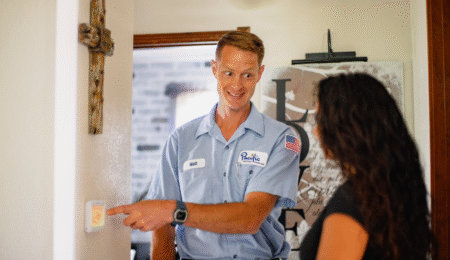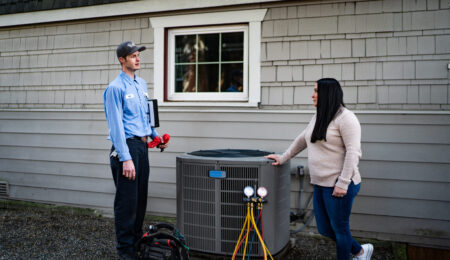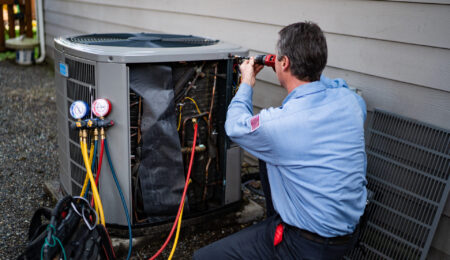If you’re in the market for a new heating and cooling system, there’s a good chance you’ve come across heat pumps—versatile, energy-efficient systems that both heat and cool your home. But before you make the switch, one important decision remains:
Should you choose a dual fuel system or go all-electric?
This guide will help you understand the differences, benefits, and best applications of each setup—so you can make a confident, well-informed decision.
What Is a Heat Pump?
A heat pump is an all-in-one heating and cooling system that moves heat rather than generating it. In the summer, it works like an air conditioner—pulling heat out of your home. In the winter, it works in reverse—extracting heat from outdoor air and bringing it inside.
What’s the Difference Between Dual Fuel and All-Electric?
Both systems rely on a heat pump, but the backup heat source is what sets them apart:
-
All-Electric Heat Pump System: Uses electric resistance heat as a backup when temperatures drop too low for the heat pump to work efficiently.
-
Dual Fuel System: Combines an electric heat pump with a gas furnace that kicks in when outdoor temps fall below a set threshold.
Side-by-Side Comparison
Here’s how dual fuel and all-electric heat pump systems compare across key features:
| Feature | Dual Fuel | All-Electric |
|---|---|---|
| Primary Heat Source | Electric heat pump | Electric heat pump |
| Backup Heat Source | Gas furnace | Electric resistance heat |
| Cold Weather Performance | Excellent | Good in moderate climates |
| Energy Efficiency | High with low gas rates | High with clean grid electricity |
| Carbon Emissions | Lower than traditional systems | Lowest when powered by renewable electricity |
| Ideal For | Cold climates or homes with gas lines | Mild to moderate climates or gas-free homes |
Final Thoughts
Both systems offer excellent comfort and energy savings compared to older HVAC equipment. The right choice depends on your climate, home setup, and long-term energy goals.
Still not sure?
A comfort advisor from our team can help you weigh your options and select the system that fits your home and budget best.



